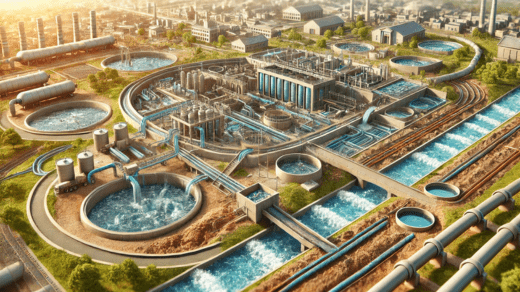Innovative Solutions for Managing Sewage Water in Residential and Commercial Spaces
Effective sewage water management is a cornerstone of modern infrastructure, ensuring both environmental sustainability and public health. With advancements in technology and growing awareness of resource conservation, innovative solutions for treating, managing, and even managing sewage water are becoming more accessible and effective for residential and commercial applications.
In this article, we explore cutting-edge methods and technologies transforming sewage water management into a smarter, greener process.
The Importance of Effective Sewage Water Management
Sewage water, often considered waste, is a valuable resource when managed effectively. Proper treatment and reuse:
-
- Reduce environmental impact: Prevent water pollution and protect ecosystems.
- Conserve water resources: Reuse treated water for irrigation, industrial processes, or non-potable needs.
- Support sustainability: Align with green building standards and reduce reliance on freshwater supplies.
Modern Methods for Managing Sewage Water
- Decentralized Wastewater Treatment Systems (DWTS)
These compact, on-site systems treat sewage water at the source, making them ideal for remote areas, small residential complexes, or individual buildings.
How It Works: Wastewater is collected, treated through filtration, and sometimes disinfected.
Advantages:
- Reduces the load on centralized sewage systems.
- Enables water reuse on-site for landscaping or flushing.
- Lowers infrastructure costs for new developments.
- Advanced Treatment Technologies
- Membrane Bioreactors (MBR)
MBR systems combine biological treatment with membrane filtration to achieve high-quality effluent.
Ideal for: Residential communities and commercial properties requiring water reuse.
Benefits:
- Compact design for small spaces.
- Produces water suitable for irrigation or industrial reuse.
- UV Disinfection
Ultraviolet light disinfects treated sewage water, removing pathogens without chemicals.
Advantages:
- Eco-friendly with no chemical residue.
- Effective against bacteria and viruses.
- Electrocoagulation
This process uses electrical currents to remove contaminants from sewage water.
Applications: Industrial wastewater treatment and advanced residential systems.
- Smart Sewage Management Systems
Smart technologies are revolutionizing sewage water management by integrating IoT (Internet of Things) and automation.
-
- Key Features:
- Real-time monitoring of flow rates, contaminants, and water levels.
- Predictive maintenance alerts for pumps and systems.
- Automated adjustments for optimal performance.
-
- Benefits:
- Improves efficiency and reduces operational costs.
- Minimizes downtime and risks of system failure.
Reusing Treated Sewage Water
Recycling treated sewage water is a sustainable practice gaining traction in both residential and commercial settings.
Applications:
-
- Irrigation: Treated water is ideal for landscaping and agriculture, reducing demand on freshwater sources.
- Non-potable Use: Use in toilets, cooling systems, and industrial processes.
- Groundwater Recharge: Safely replenish aquifers with treated water.
Regulatory and Safety Considerations
-
- Ensure compliance with local regulations on water reuse.
- Regular testing of treated water for contaminants and pathogens.
Innovations in Commercial Sewage Water Management
Commercial spaces often generate significant wastewater, necessitating robust solutions.
- Sewage Heat Recovery Systems
These systems capture heat from wastewater to reduce energy consumption in buildings.
-
- Common in: Hotels, office buildings, and industrial facilities.
- Greywater Systems
Separating greywater (from sinks, showers, etc.) from blackwater allows easier reuse and treatment.
-
- Used for: Irrigation and toilet flushing in commercial spaces.
Challenges and the Path Forward
While modern sewage water management technologies offer significant benefits, challenges remain:
-
- High Initial Costs: Advanced systems may require substantial investment.
- Public Perception: Misconceptions about water reuse may hinder adoption.
- Maintenance Requirements: Regular upkeep is crucial to ensure system efficiency.
Solutions to Overcome Challenges
-
- Incentives: Governments can provide subsidies or tax benefits for adopting sustainable practices.
- Education: Public awareness campaigns to highlight the safety and benefits of treated water reuse.
- Technological Advancements: Continued innovation will drive down costs and improve accessibility.
Final Thoughts
Managing sewage water effectively is no longer just a necessity; it’s an opportunity to embrace sustainability and innovation. From advanced wastewater treatment technologies to smart management systems, SFA India’s modern solutions empower residential and commercial property owners to conserve resources and protect the environment.
Investing in innovative sewage water management is a step toward a cleaner, greener future—one drop at a time.

